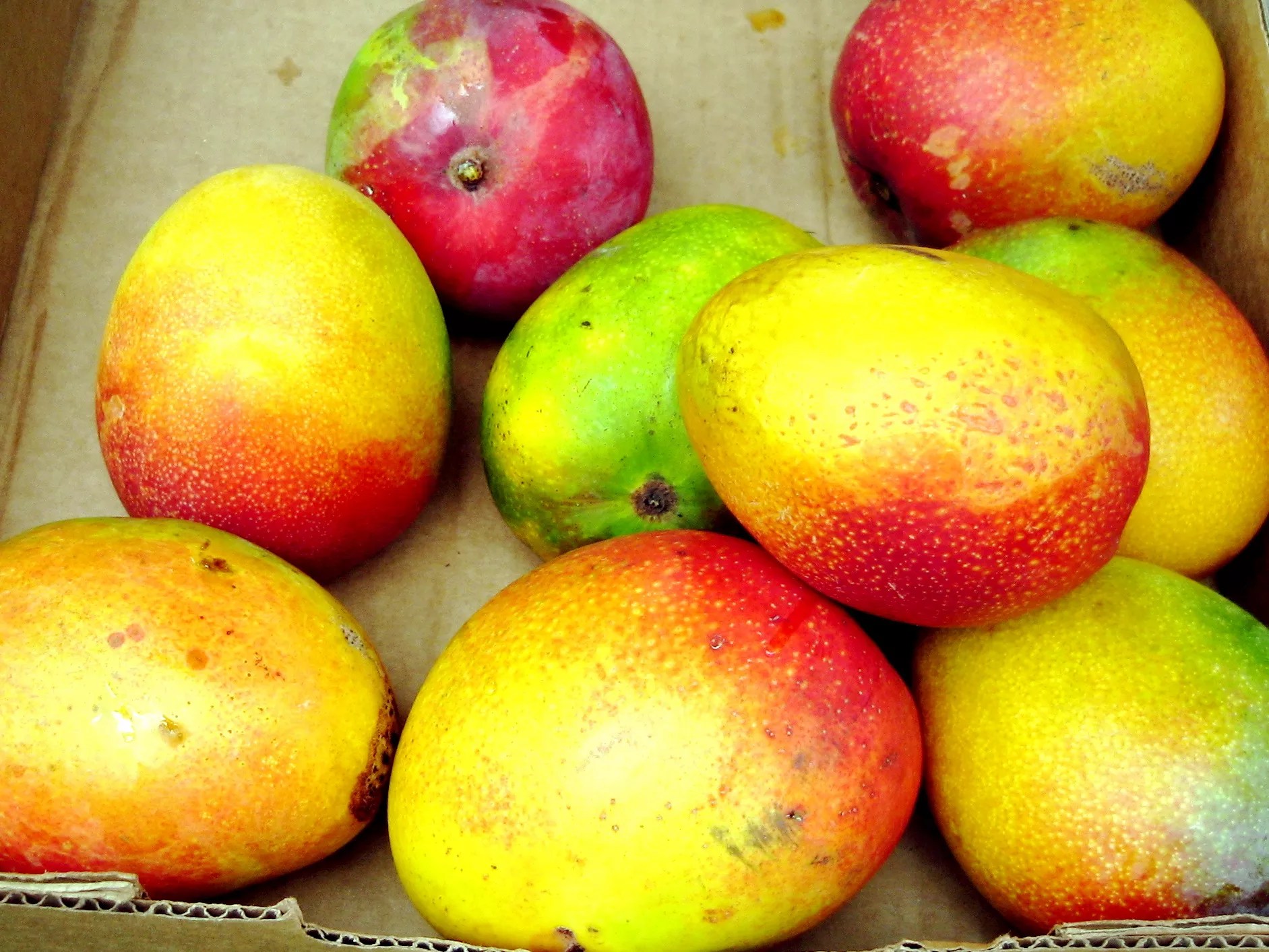

Audio By Carbonatix
Is there anything more Miamian than a mango? It’s beautiful, a little tangy, a non-native thriving in South Florida’s tropical climate, and, with a bit of work done, can be absolutely jaw-dropping.
The mango livens up any dessert it touches and dulls the sting of alcohol in cocktails. Its golden influence is so strong that some shops in South Florida accept it as currency.
Beginning in May, Miami’s widespread mango trees burst with ripe fruit. Because the fruit is so plentiful and coveted, people drive around the 305 specifically looking for tree limbs bowed by the weight of their would-be bounty.
It’s not uncommon to see people driving or walking through neighborhoods in search of the stone fruit, which begs the question: Is it legal to pick mangos from someone else’s property?
Is it legal to pick from someone else’s mango tree?
To clear up the oft-pondered questions about fruit-picking, New Times consulted attorney David Barman, who teaches business law at Florida International University. During one of his first lectures each semester, Barman explains that who owns a fruit depends on where it falls.
“If the fruit is on the branch of your neighbor’s tree but hanging over your fence, it’s still your neighbor’s fruit,” he previously told New Times.
“Under common law, if the fruit falls in your yard or on the sidewalk, it’s for sure yours,” Barman says. “If the fruit tree is on the branch of your neighbor’s tree but hanging over your fence, it’s still your neighbor’s fruit. If you take it before it falls, it’s common-law theft.”
According to Barman, Gallo v. Heller sets the state’s most commonly known legal precedent for neighbor-tree relations. The 1987 appellate court case in Miami-Dade County centered on a tree that damaged a neighbor’s roof. The appellate court found that in Florida, landowners aren’t legally responsible for tree branches or roots that cross onto a neighbor’s property. However, the neighbor can trim any encroaching vegetation at their own expense.
And, should those branches bear fruit when they’re trimmed, Barman says, they should be fair game.
But because Gallo v. Heller doesn’t specifically refer to picking fruits from a neighbor’s tree, and Florida statutes don’t mention the issue outright, Barman recommends curious mango pickers seek clarity from their municipal government.
According to the Miami-Dade County code of ordinances, taking plants or fruit from someone else’s property without permission is a violation.
But gaining permission doesn’t always lead to peaceful picking, as one man found out Monday.
A mango-picking stop on NW 5th Street turned sour Monday when a man pulled a gun on a woman who said he took too many mangos after she had permitted him to pick. She called Miami police, who arrested him.
What’s the penalty?
“It is unlawful for any person to take, carry away, or damage any plants, fruits, plant products, or nursery stock contained within any nursery or private or public property without the consent of the owner of the property or his agent,” reads Miami-Dade County code section 21-118. A violation could result in a fine up to $500, or up to 60 days in county jail.
Sneaking on someone else’s property to pick mangos may also be trespassing, which is punishable by up to 60 days in jail in Florida, Barman says.
How many stolen mangos equal a felony?
Under Florida statute, it’s a first-degree felony to steal property worth more than $20,000. If prosecutors base charges on Walmart’s price of 97 cents per mango, it would take more than 20,000 stolen mangos to equal a felony charge.
“I tell my students that if we followed the rules from kindergarten, we wouldn’t need most laws,” Barman tells New Times. “Play nice, and if your tree has a lot of fruit, be a good neighbor and share it. And if you want some fruits, don’t just presume you can take them – ask first.”
In light of recent events, a safe follow-up question might be: How many may I take?